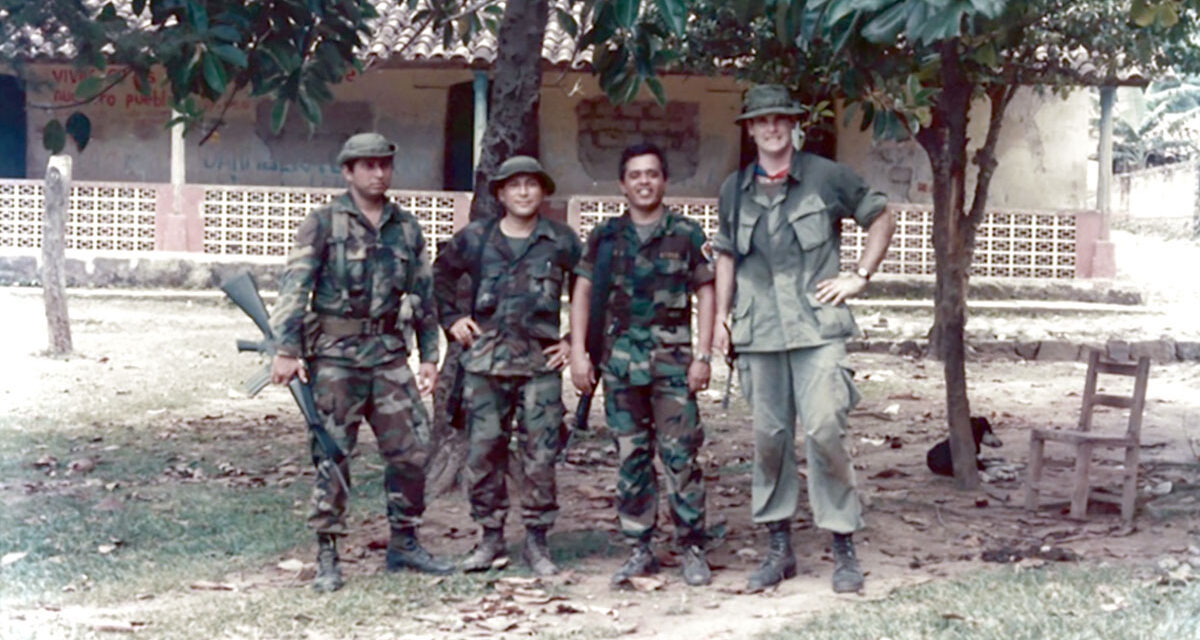Dale Bendler grew up in a middle-class home in New Jersey. Raised by his mom and dad alongside two brothers and a sister, his early years were pretty typical of an American teenager in the 1970s: school, sports, summers on the Jersey shore. “An unremarkable upbringing,” Bendler says.
But something changed. He developed an itch that needed a scratch. To do something bigger than himself. To make a contribution to a larger cause: the Marine Corps was the answer.
What Is a CIA Chief of Station?
The title “Chief of Station” may not mean much to the average person. But in intelligence communities, it’s a big deal. The Chief of Station is the top CIA officer in a foreign country, responsible for all CIA activities there. It’s a job that combines diplomacy, strategy, spy tradecraft, and a whole lot of pressure, especially in a post-911 world.
Bendler held this role not once, but three times.
He won’t share much detail about where or when. “Let’s just say I spent a lot of time listening, and not always in English,” he says. That understatement fits his personality—calm, measured, and careful with his words. But behind those words are years of experience in intelligence operations across the world.
Education That Prepared Him for the Shadows
Dale Bendler earned his bachelor’s degree at Rutgers University, a choice rooted in staying close to home and affordable, thanks to the GI Bill. “It wasn’t a fancy school. But Rutgers gave me the tools I needed,” he explains. Writing skills, an appreciation of world history, and a foreign language after a year abroad. Later, he earned a Master’s degree from the Naval War College. That program is known for its focus on military strategy, international security, and leadership. “That’s where the big picture started to click for me,” he says.
A Career in the Shadows
Dale Bendler spent decades at the CIA. While many federal employees retire with anonymity, Bendler left with one of the agency’s highest honors: the Distinguished Career Intelligence Medal.
He worked across several key intelligence areas, including:
- Counterterrorism
- Counterinsurgency
- Espionage
- Intelligence operations with foreign partners
These are not just buzzwords for him—they’re the real-world problems he spent years trying to understand and contain.
“In this line of work, you learn that perfect information doesn’t exist,” Bendler explains. “You’re always acting with some uncertainty. Your job is to reduce that as much as possible—and then act anyway.”
Lessons in Leadership From the Field
When asked what makes a good leader in intelligence, Bendler doesn’t talk about rank or power.
“You have to have deep technical expertise and be able to handle stress,” he says. “In the field, your team needs to believe that you’re calm under pressure and that you’ll back them when things go sideways.”
He adds that listening was his most important skill: “Too many people think leadership means talking. I found that silence, patience, and observation gave me far more power.” Not just with Americans, but with foreigners as well.
That insight isn’t just about spy work—it’s useful in any career where people need to make high-stakes decisions with incomplete data.
Staying Strong Outside the Office
Now retired, Bendler stays active. He lifts weights, swims, bikes, and walks regularly. “Moving is how I think,” he says. “I think the physical complements the mental.’
Even in retirement, he continues to read and study topics related to national security and global conflict. “It’s not a job you just shut off,” he says.
Why Intelligence Still Matters Today
Bendler believes the world has become harder to read.
“There are more players. More tools. More fog,” he says. “But at the end of the day, the goal hasn’t changed—understand what others want, what they fear, and what they might do next.”
He’s concerned that modern attention spans and constant noise make thoughtful analysis harder. “The loudest voices often aren’t the smartest ones,” he says. “Good intelligence takes time.”
Advice for Young Professionals in High-Pressure Careers
When asked what advice he’d give to those entering tough careers—whether it’s government, business, or beyond—he keeps it simple.
“Know your limits. Learn to manage stress. And don’t fake confidence,” Bendler says. “People see through that fast.”
Final Reflections
Dale Bendler’s story isn’t one of public fame. But behind many major U.S. moves over the past 30 years, people like him were working in the background—carefully, quietly, and with focus.
He didn’t seek headlines. He sought results. “If I did my job right,” Bendler says, “you never heard about it.”
That, perhaps, is the truest mark of success in intelligence—and in any field where outcomes matter more than attention.




